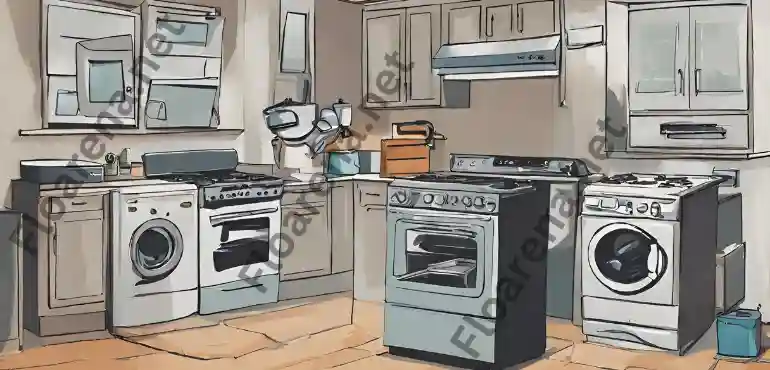Appliances have become an essential part of our daily lives, making our household tasks easier and more efficient. However, like any other machine, they are also prone to wear and tear, breakdowns, and malfunctioning.
Repairing appliances can be a daunting task for many homeowners. The thought of complicated mechanisms and technical jargon can be overwhelming, especially if you have no prior experience in appliance repair. But fear not, with the right knowledge and a few tools, anyone can become an expert in appliance repair.
In this comprehensive guide, we will demystify appliance repair by breaking down the basics and giving you practical tips on how to troubleshoot and fix common issues with your appliances.
Understanding How Appliances Work
Before we dive into the world of appliance repair, it’s essential to have a basic understanding of how appliances work. Each appliance has its unique structure and function, but they all operate based on a few fundamental principles.
Appliances are powered by electricity or gas and consist of various components such as motors, compressors, heating elements, and pumps. These components work together to perform specific tasks, such as washing clothes or cooking food.
The power source provides electricity or gas to the appliance, which is then distributed to the various components through wiring and circuits. As these components work together, they create heat, cold, motion, or pressure to complete the desired task.
Understanding how each component works and interacts with others will help you troubleshoot any issues and identify which part needs repairing or replacing.
Tools You’ll Need
To repair appliances, you will need a few basic tools that are commonly used in most repairs. These include screwdrivers, pliers, multimeters, wrenches, and socket sets. It’s also essential to have safety gear such as gloves and goggles to protect yourself from any potential hazards while working on an appliance.
Aside from these standard tools, some appliances may require specialized or manufacturer-specific tools. It’s always a good idea to have the appliance manual handy to refer to any specific tools needed for repairs.
Troubleshooting Common Issues
Now that you have a basic understanding of how appliances work and the essential tools, let’s look at some common issues you may encounter with your appliances and how to troubleshoot them.
No Power
If your appliance is not turning on or showing any signs of power, the first thing you should check is the power source. Ensure that it’s plugged in correctly and that there are no tripped circuit breakers or blown fuses.
If the power source seems fine, then it’s likely an issue with the appliance itself. Check the power cord and wiring for any damage or loose connections. If everything looks intact, then the problem could be with a faulty component such as a motor or compressor.
Leaking Water
Leaking water is a common issue in dishwashers, washing machines, and refrigerators. The first step is to determine where the water is coming from. For dishwashers and washing machines, it’s usually a clogged drain hose or pump. In refrigerators, it could be a faulty water inlet valve or a cracked water supply line.
To fix the issue, clean or replace the clogged drain hose or pump. For refrigerators, you may need to replace the damaged part with a new one.

Strange Noises
If your appliance is making unusual noises, it could be due to a faulty motor or compressor. However, before assuming the worst, check for any loose parts such as screws or bolts that may be causing the noise. Tighten them if needed.
If there are no loose parts, then the problem may lie with a faulty motor or compressor. It’s best to consult a professional for these repairs as they require specialized knowledge and tools.
When to Call a Professional
While some appliance issues can be fixed with basic troubleshooting and tools, others may require the help of a professional. For example, if your AC unit is not blowing cold air, it could be due to a refrigerant leak, which requires specialized equipment and knowledge to fix. Many professionals in Salt Lake City specialize in air conditioning repair, so it’s best to leave such repairs to them.
Additionally, if your appliance is under warranty, attempting to fix it yourself may void the warranty. In such cases, it’s best to call a professional authorized by the manufacturer. You can also save time and effort by calling a professional if you are unsure of the issue or don’t have the necessary tools.
Maintaining Your Appliances
Prevention is always better than cure, and this applies to appliances too. Regular maintenance can extend the lifespan of your appliances and prevent frequent breakdowns.
So, what can you do to maintain your appliances? Firstly, always follow the manufacturer’s instructions for operation and maintenance. This includes cleaning or replacing filters, descaling, and lubricating parts.
It’s also essential to keep an eye out for any signs of wear and tear, such as frayed cords or rusted parts. These should be addressed immediately to prevent further damage.
Lastly, consider scheduling regular maintenance checks with a professional to ensure your appliances are in top working condition.






